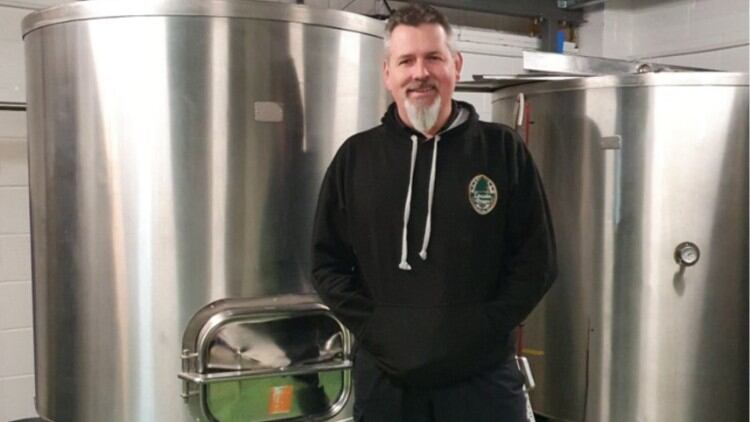I’m proud to have worked in the customer service industry for more than 35 years. My first job as a ‘Saturday-kid’ at Foster Menswear was so enjoyable I applied for a full-time position, much to the disdain of my career’s advisor. “You’ll regret leaving school and not going to University”, he said. Yet just ten years later, at the age of 27, I was enjoying my first area management role with the same company without a penny of student debt.
Having since worked for one of the leading optician’s and now running a successful brewery and pub company, I realise how much I love customer service. There’s great satisfaction helping people and making their day – whether that’s helping customers choose an outfit for their wedding, find a pair of spectacles that suits their face shape (and helps them see clearly again!) or delighting a group of friends on a night-out. Every interaction we have with a customer is a moment of truth; we represent our businesses and brands, influencing the opinion our customers hold of us. There’s no greater truth than “A happy customer tells a friend; an unhappy customer tells the world.”
In my retail days, I’d be frustrated with those who didn’t take retail seriously. They’d say, “I’m only doing this while I look for a proper job.” Viewed through the lens of hospitality, this situation is a hundred times worse – and right now in 2023, I believe the industry needs a reset.
It doesn’t have to be this way. I’ve written before that hospitality offers so much potential - It’s possible to enter the industry with few or no qualifications and progress to running your own business, with some of the lowest start-up costs. For those who work for even a few weeks in a pub, they’ve learnt skills in teamwork, communication, punctuality, appearance, how to be social; all excellent transferable skills. We’re a service-led industry that exists to help people celebrate and come together – pubs are often cited as the ‘beating heart of the local community’; so surely, it’s an enjoyable place to work?
Whether you run a single hospitality venue or are part of a larger group, you, and by you, I mean the person who holds direct managerial accountability, must understand that you’re the one who creates an enjoyable place to work. People don’t quit their jobs, they quit their bosses. If you don’t show interest in your people, then why should they show interest in your business?
Time for a change
Consider the first impression you make to a new employee on their first day. Do you take them through a structured induction? Buddy them up with an enthusiastic member of the team to show them the ropes? Do you explain the culture and mission of your company? Show them the fire evacuation procedures and any potential hazards within your business?
All too often, we’re simply desperate to get a new starter working behind the bar so we can get on with our day. Worse still, we’ll expect someone to work a ‘trial shift’, sometimes without pay, to see if they’re ‘up to the job’. Consider the damage this can do to the reputation of your business, the message it sends to any prospective employee and our industry as a whole.
Working in a pub is rather like being on stage. We’re presenting to a huge audience every single day. An audience will either show their appreciation with applause and repeat ticket purchases, or they’ll walk out and leave you in your empty theatre.
I believe it’s time for a change and I believe it’s going to take time. We have to invest in our people to make hospitality a viable career choice. Investment means time and money. Money may be in short supply at the moment, but we can always find time. Time to train, time to ask our staff how they are, time to show you appreciate the work they’re doing. It takes no time at all to congratulate someone when they’ve delivered great customer service, but never underestimate the feeling of satisfaction and appreciation this gives to the employee.
All these small investments of time can make a big difference, in lower labour turnover, lower absence levels and higher standards of customer service from an altogether more motivated team.
At Lincoln Green, we utilised the time during the pandemic lock downs to reassess our people strategy. We started a monthly newsletter, initially intended to let our teams know how we were coping, to reassure them that their jobs were safe and how much they would receive from the furlough scheme so that they could budget and plan accordingly. This newsletter was so well received that we’ve continued to keep in touch every month – it’s now a celebration of our successes, it highlights people who’ve done a great job and updates everyone on our current and future plans. Our ‘Mindful Moment’ section encourages everyone to reflect on their mental health, offering hints and tips on how to stay sane in the modern world.
People strategy
In conjunction with HIT Training, we launched an apprenticeship programme where twenty percent of all employees have either completed or are working towards a Level 2, 3 or 4 NVQ qualification. We wrote a structured induction to ensure that every new starter receives a consistently strong first impression and as part of this, we explain our mission and values; the things that define our aims and how we like to work at Lincoln Green.
A people strategy needs involvement from everyone in your business. At Lincoln Green, we’re constantly seeking new ways to motivate, encourage, train and reward our people, via consistent dialogue and communication.
I believe we all need to start by taking a people-focused approach - this lays a solid foundation for further investment. Apprenticeship programmes, skills development workshops, incentive schemes, flexible working patterns and team away days can all build a stronger culture in the longer term, all supporting financial gains; Lincoln Green has benefited from a 17% like for like increase in sales in the current financial year and a 68% reduction in labour turnover compared to 2019.
Taking a more aspirational view, our industry would also benefit from additional Government support – hospitality is the third largest employer in the UK; investment in our sector benefits a great many workers.
I believe Apprenticeship funding is overly complex and acts as a barrier for many small businesses. Whilst funds can be transferred from employers who pay the levy to other employers through the apprenticeship service, it’s a complicated process and employers no longer receive an incentive payment for hiring a new apprentice.
There’s a huge opportunity for tax incentives too – imagine if employees received a tax incentive whilst learning? Employers could be offered national insurance relief for all employees involved in apprenticeship training, not just limited to certain age groups or incomes – shouldn’t we be incentivising all learning, regardless of age? Further incentives could also reward companies that reward employees with higher salaries, above the National Living Wage rates, for the successful achievement of qualifications.
One thing’s for sure, in order for us to crack the recruitment issues we’re currently facing, we have to start thinking differently. We all owe it to our industry to begin making hospitality a more attractive place to work.




